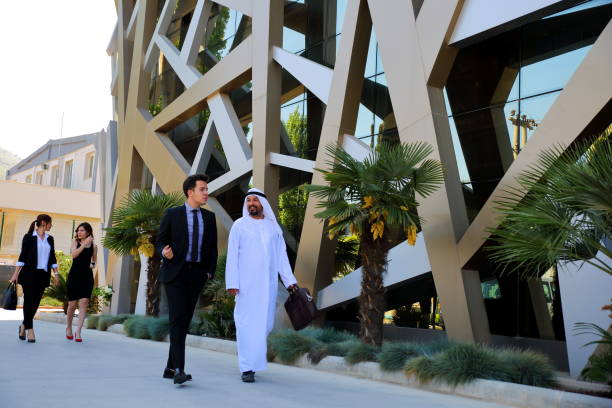A Guide to Dubai’s Real Estate Taxation System for Foreigners
Investing in Dubai’s real estate market can be an attractive proposition for foreigners seeking lucrative opportunities. However, understanding the taxation system is crucial for maximizing your investment. This article provides a comprehensive guide to the tax implications for foreign investors in Dubai’s real estate sector, outlining the available regulations and fees that one should be aware of before making a purchase. As a popular destination for expatriates, it’s essential to grasp how the taxation landscape operates to ensure compliance and seamless transactions.
Understanding Property Ownership Regulations in Dubai

In Dubai, foreign nationals are permitted to purchase properties in designated areas known as Freehold areas. This regulatory framework facilitates property ownership with fewer restrictions compared to other regions in the UAE. Investors can choose from various property types, from luxurious villas to modern apartments. Some key points regarding property ownership include:
- Freehold properties allow 100% ownership by foreigners.
- Leasehold properties enable ownership for a limited time, often up to 99 years.
- Differences exist among the emirates; thus, it’s important to check regulation specifics.
- Approval is typically granted through the Dubai Land Department (DLD).
- It’s advisable to engage a local lawyer for a clearer understanding of the laws.
Understanding these regulations is fundamental for any foreign investor looking to navigate the Dubai real estate landscape effectively.
Key Taxes and Fees for Foreign Investors

While Dubai is renowned for its lack of property tax, investors must still consider certain fees associated with property ownership. These include a range of initial purchase costs, yearly fees, and potential taxes depending on the investment type. Key costs include:
- Transfer Fee: A standard fee of 4% of the purchase price paid to the DLD upon property registration.
- Registration Fee: A fee that varies based on the property type but typically ranges between AED 2,000 to AED 4,000.
- Service Charges: These fees cover the maintenance of shared areas and facilities, usually calculated per square foot.
- Real Estate Agent Fees: If you enlist the services of a real estate agent, expect to pay around 2% of the property value as a commission.
- VAT on Services: While property sales aren’t subject to VAT, services related to property management might incur a 5% VAT fee.
Being aware of these costs upfront enables better financial planning for acquiring property in Dubai. It’s essential to factor in these fees when calculating your overall investment costs.
Rental Income Taxation
One enticing aspect of investing in Dubai real estate is that there is no taxation on rental income, making it an attractive option for generating passive income. However, investors should be cognizant of their responsibilities concerning corporate taxation if they register a business to manage their rental properties. Key considerations include:
- Property owners need to ensure compliance with regulations set by the Dubai Rental Dispute Centre.
- While there’s no income tax, income from rental properties may influence your obligations in your home country.
- Investors should keep thorough records of all rental payments and expenses for accounting and potential tax implications elsewhere.
- Short-term rentals, like those listed on Airbnb, might have special regulations to comply with, especially regarding licensing.
- Consider hiring a local property manager for assistance with rental management and compliance requirements.
Exercising due diligence in the context of rental properties is vital to ensure your investment remains profitable without unexpected liabilities.
Exit Strategies and Capital Gains Tax
Understanding exit strategies is crucial when investing in Dubai’s real estate market. A significant advantage for foreign investors is the absence of capital gains tax when selling property in Dubai. However, certain factors should be considered when planning to sell your property, including:
- Your property’s market value might fluctuate based on the current market conditions.
- While no capital gains tax applies, the 4% transfer fee re-emerges during the sale transaction.
- Ensure to factor in any repairs or renovations that may affect selling price.
- Engaging a qualified real estate agent can help navigate selling prices and strategies effectively.
- Timing the market effectively can optimize your return on investment.
With proper planning and attention to market conditions, foreign investors can maximize their returns when exiting their investments in Dubai’s real estate market.
Conclusion
Investing in Dubai’s real estate market holds great potential for foreign buyers with the right knowledge of the taxation system. Understanding property ownership regulations, key costs, rental income obligations, and exit strategies can help investors make informed decisions. The attractiveness of the no income tax and capital gains tax environment adds to the comprehensive benefits that Dubai presents to foreign real estate investors. As always, seeking expert advice and staying updated with any changes in regulations will ensure a smooth and profitable investing experience.
Frequently Asked Questions
1. Do foreign investors pay property taxes in Dubai?
No, Dubai does not impose property taxes on property owners. However, investors should anticipate other fees, such as transfer and registration fees.
2. Is there a real estate investment minimum for foreigners in Dubai?
No explicit minimum investment is mandated for foreign investors in Dubai. However, certain developers may have specific requirements.
3. Are there any tax implications if I sell my property in Dubai?
There are no capital gains taxes in Dubai when selling a property; however, a 4% transfer fee is applicable during the sale.
4. Can foreigners obtain a mortgage in Dubai?
Yes, foreign investors can obtain a mortgage in Dubai, typically requiring a maximum loan-to-value ratio of 75% for expats and 80% for GCC residents.
5. What are the regulations around short-term rentals in Dubai?
Short-term rentals are permitted; however, property owners must comply with local laws, including obtaining the required licenses from the Department of Tourism and Commerce Marketing.





